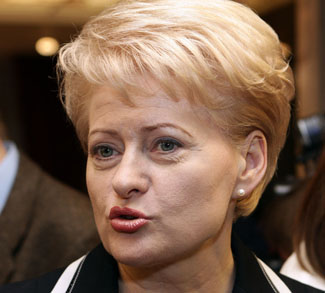In Charles Dickens’ novel Oliver Twist, Mr. Bumble was told that the law takes it for granted that a wife follows the authority of her husband. Mr. Bumble famously declares: “If the law supposes that, the law is an ass, an idiot.”
Similarly, one might assume that Hungary, after enduring so many political and social catastrophes since 1918, has learned from its history. But this assumption is deeply flawed. Hungary’s persistent failures are rooted in the survival of a feudalistic, autocratic ideology that has stunted the development of a true political culture among its people.
Due to the unique and complex nature of the Hungarian language, foreign perceptions of Hungary have long been shaped by propaganda. For decades, Hungary has been depicted as a picturesque land of cheerful citizens, rich food, and lively gypsy music. Even in the 1980s, during the Soviet Union’s waning control, Hungary earned the nickname “the happiest barrack” due to its relatively relaxed “Goulash Communism.” However, beneath this facade lay a nation struggling with deep-seated political dysfunction.
After gaining independence in 1990, Hungary failed to break free from its historical patterns of mismanagement and corruption. Instead of progress, the country’s governance has been plagued by incompetence, much like before. These issues escalated dramatically in 2010 when the Alliance of Young Democrats (FIDESZ), led by Viktor Orbán, won a two-thirds majority in Parliament. This victory marked the beginning of a regime characterized by corruption, authoritarianism, and the systematic dismantling of democratic institutions.
Domestically, Orbán has manipulated both real and fabricated crises to tighten his grip on power. By imposing a near-constant “state of emergency,” he has transformed Hungary’s Parliament into a tool for one-party rule. Since 2020, his rhetoric has been dominated by warlike language targeting both domestic critics and international partners. Orbán has positioned himself as a defender against supposed enemies, ranging from the United States and NATO to the European Union and even Ukraine. He absurdly blames these entities for provoking Russia, portraying Vladimir Putin as a peace-loving leader forced into war.
Once a Communist youth leader and alleged informant for Hungary’s secret police, Orbán now behaves like an autocrat, channeling Louis XIV’s infamous proclamation, “L’État, c’est moi” (“I am the state”). Orbán frames any criticism of his leadership as an attack on the Hungarian nation itself, branding dissenters as enemies who must be silenced. The creation of the Sovereignty Protection Office in 2023, ostensibly to safeguard Hungary’s sovereignty, exemplifies this effort to consolidate power. In reality, the office serves to suppress opposition and further undermine the rule of law.
Orbán has also exploited Hungary’s historical narrative of victimhood, portraying the nation as a cultural treasure oppressed by foreign powers. His latest policies, such as “economic neutrality” and “strategic ambiguity,” claim to position Hungary as a neutral bridge between Europe and Asia. These ideas, however, are nothing more than delusions rooted in his authoritarian mindset. Hungary remains heavily reliant on NATO and EU support, yet Orbán undermines these institutions by acting as a “Trojan Horse” for Russia and China within both organizations.
This schizophrenic strategy is unsustainable. Orbán’s belief that Hungary can benefit from both Western alliances and Eastern authoritarian regimes reflects a dangerous fantasy. His approach threatens to isolate Hungary internationally while eroding its democratic foundations at home. Meanwhile, Hungary’s geopolitical importance continues to be overstated by Orbán, who punches far above the country’s actual weight on the global stage.
Both the United States and the European Union have underestimated the extent of Orbán’s authoritarianism and its destabilizing effects. While it is late in the game, there is still time for NATO and EU member states to act decisively. These organizations must unite to pressure Hungary into returning to the path of constructive membership. This involves holding Orbán accountable for his actions and insisting on compliance with democratic norms.
The ultimate goal, however, must go beyond containing Orbán’s regime. NATO and the EU should focus on supporting the Hungarian people in their efforts to reclaim their country from authoritarian rule. With the right support, Hungary has the potential to develop into a vibrant democracy that upholds the values of freedom, equality, and justice. This transformation is not only essential for Hungary’s future but also critical for the stability of Europe and the broader democratic world.
Dr. Miklos Radvanyi is the Vice President for Foreign Policy at the Frontiers of Freedom Institute. An expert on geopolitical affairs, he has written extensively, been published in at least three different languages, and has lectured around the world on foreign policy and international relations.
The views expressed in this article belong to the author(s) alone and do not necessarily reflect those of Geopoliticalmonitor.com.




